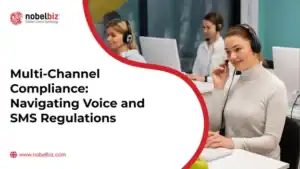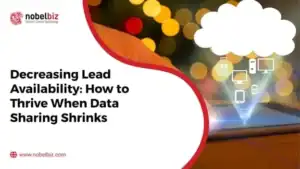We tackled the subject of robocalls and scams in the past. However, in this article, we’ll be looking both at the updated situation of scam victims and popular scam scenarios in 2020, as well as the reasons why these scams are growing in popularity and the main drivers of scammers.
While the topic of scams has been hot in the last couple of months, it’s important we keep the conversation going and start spreading awareness of the different, and sadly, very efficient tactics scammers are using to get to their victims.
Learn more about how to protect your consumer from the incredible Rebekah Johnson, CEO of Numeracle.
And it may seem at first that this is maybe an adjacent topic in the Contact Center Industry but it’s not. It’s crucial for Contact Centers to be on the front line of this battle, doing everything they can to cross a very well-defined line between illegal robocalls and legitimate outbound call centers.
 A Rising Trend
A Rising Trend
Back in June, there were 52,000 scam complaints recorded by the US authorities in 2020. Now, the number is over 60,000 and rising constantly. Why is that?
According to a recent AARP survey, a staggering 44% of US citizens were contacted by an imposter posing as a government official and requesting money (more often than not in the form of gift cards or pre-paid cards). The consequences of not paying up are presented as dire – jail time being their go-to choice. Ironic, yes. Effective, yes.
Jane Rupp, president, and CEO of the Better Business Bureau in Utah and Northern Nevada recently stated that:
“Government impostor scams are constantly evolving, and they prey on people with threats of being arrested if money is not paid or personal information provided.”
Scammers are getting bold in their requests. And their cold-blooded actions also suggest a type of desperation that does nothing else than fuel their efforts to illicitly obtain money. What is their motivation?
 It All Comes Down to Basic Needs
It All Comes Down to Basic Needs
The best way to protect yourself and your clients is to understand the motivation behind the crime. And to do that, we must look at the pattern of scam calls throughout these last couple of months.
Government impostor scams have always been around. They usually spike during tax season (for obvious reasons) and are replaced with tourist bait or other popular scam scenarios according to the time of year. However, the current economic and global climate has created the perfect scam storm.
The COVID-19 epidemic has affected everybody. Entire industries are on the verge of collapse as a new normal is setting in place. However, there was one country in particular that took it especially badly – India.
A hub of the call center space, India was forced to send tens of thousands of employees home with no pay and no remote work possibilities. And with big companies turning their attention to hiring locals, a serious gap was created. Now, the infrastructure is still there and there are still numerous individuals with outbound skills in need of fast money. What does this have to do with US scam reports?
 Tracing the Call
Tracing the Call
Now, looking from a Contact Center perspective, 44% of Americans is an impressive number. And to be able to contact so many people you need more than just a team of criminals and some phones. You need infrastructure and you need outbound capabilities that offer you the possibility of maximizing interaction times and minimizing dead times. In other words, you need robocalls.
And it seems that the majority of these government officials, CDC representatives, IRS agents, or contact tracers have been making these calls from India.
 The Solution
The Solution
Since these calls need to go through a local US-based gateway carrier and maybe even receive a spoofed number before reaching the victims, the proper authorities are doing everything in their power to detect the illegal carriers and cease their activity.
So far, the FCC’s efforts have been successful as the overall number of illegal robocalls originating from India has dropped after 2 carriers were sued for illegal activities. However, there is still a dire need for better legislation when it comes to dealing with gateway carriers.
Conclusion
Now, the numbers might be showing that the majority of calls are originating from India. But that doesn’t mean that we should treat an entire country and all its Contact Center representatives as criminals. The best way to approach this is to cooperate with the proper authorities and isolate illegal robocalls instances from legal robocalls and provide support to those in need.

Andrei is an experienced marketing professional specializing in propelling growth for both B2B and B2C companies. Proficient in streamlining marketing operations and enhancing lead and customer experiences through SEO and marketing techniques.






